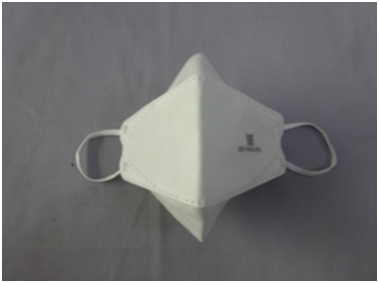Ear loop respirators/masks do not provide protection as tight fitting RPE
New HSE research has revealed that respirators/masks which rely on ear loops (including those provided with clips, 'snuggers' or other means of tightening the fit of the mask) to hold the respirator/mask in place, do not protect people adequately when used as tight fitting respiratory protective equipment (RPE).
Outline of the problem
HSE has seen an increase in the variety of ear loop respirators/masks, which indicate they offer the protection provided by FFP2 (filtering facepiece respirators or disposable half mask respirators). These products rely on having a good seal with the wearer’s face. For the majority of workers who are required to wear tight fitting RPE in the workplace, this seal cannot be achieved with a respirator/mask relying on ear loops to hold it in place.HSE does not recommend using respirators/masks secured using ear loops as tight fitting RPE
If the respirator/mask uses ear loops, in most cases, it is highly unlikely to provide the wearer with the right protection. This includes any respirators/masks which use clips, ‘snuggers’ or other means of tightening ear loops, even if they have CE or UKCA marks.
Following publication of the previous Safety Alert ‘Use of Face Masks designated KN95’, in June 2020, the NHS took early action to exclude ear loop respirators/masks from their supply chain due to concerns over their protection. As a result, respirators with a head harness will have been supplied and fit test completed with this style of respirator.
Surgical masks and other face coverings are not affected
Do not confuse FFP2 masks/respirators with masks or fluid resistance surgical masks (FRSM), shown below, as FRSM’s are used for a different purpose and are not required to be tight fitting.Face fit test
To provide adequate protection for individual wearers, all tight-fitting RPE should be fit tested by a competent assessor as part of the selection process. HSE research shows that in the majority of cases a face fit test was not passed for CE or UKCA marked ear loop mask/respirators and only in a very few cases was a face fit test passed. Because of this, HSE recommends that ear loop mask/respirators are not used as RPE in the workplace.Action required
Dutyholders are asked to revisit their Control of Substances Hazardous to Health Regulations 2002 (as amended) risk assessment and consider their RPE provision to ensure it is adequate, suitable for the user and the activity to be undertakenIf you have identified that tight fitting RPE is required, you should note HSE does not recommend using a mask/respirator which relies on ear loops to hold it in place.



